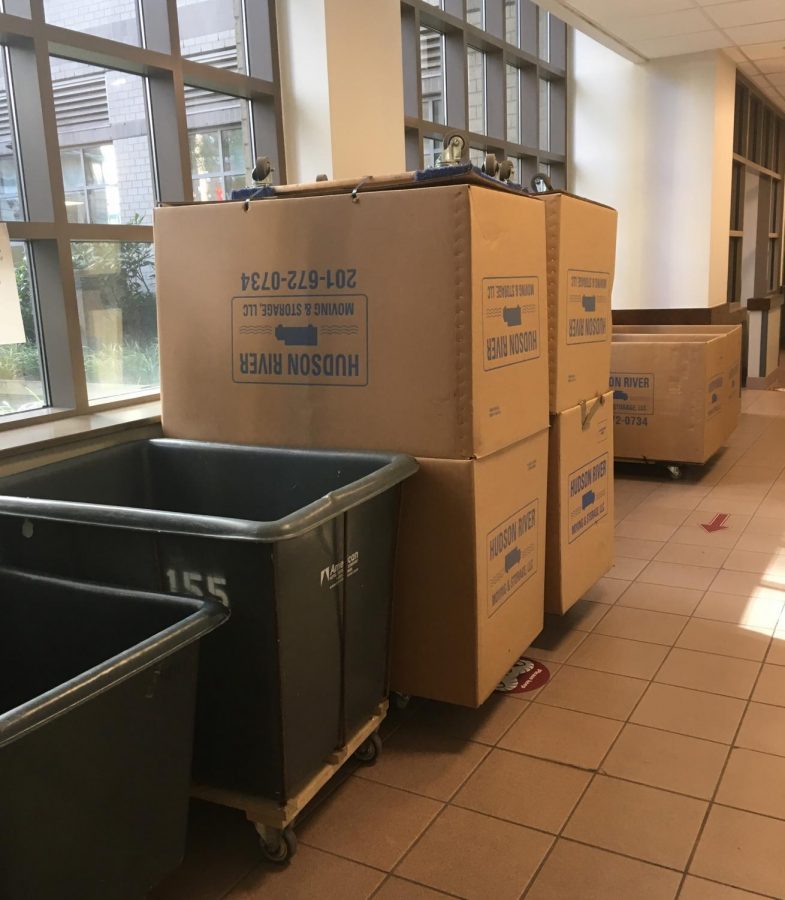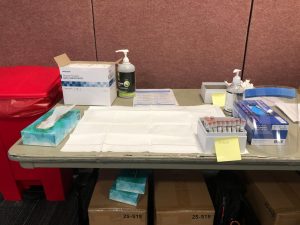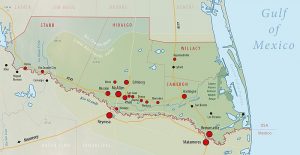Students Leave Campus as Cases Spike
A recent rise in cases during move-out has left students uncertain about the spring semester
Most students living in the dorms this semester will have moved out by Wednesday, Nov. 25, with the exception of approximately 90 students who will stay for dance classes or due to travel restrictions.
November 24, 2020
Students who resided on Fordham’s Lincoln Center campus during the fall semester are leaving until classes resume in February. Due to the pandemic, the new protocol was already requiring students to leave campus before Thanksgiving to limit travel to and from campus. Move-out comes only two weeks after a spike in COVID-19 cases on campus, causing students to question the safety of an in-person spring semester.
Safety of Living in the Dorms
Living on Fordham’s Lincoln Center campus during the fall semester was bound to look different than previous semesters due to COVID-19.
Fordham’s university-wide infection rate surpassed 1% for the first time this semester as of Nov. 13, and public schools in New York have closed as well due to the city-wide spike. On Nov. 24, a Fordham Forward update announced that the university-wide infection rate is at 1.31%.
“Due to the recent rise of COVID cases, I will be emptying my entire apartment prior to winter break in case I decide not to return to my dorm for the spring semester,” Stevie Martin, Fordham College at Lincoln Center (FCLC) ’23, said.
The recent rise in cases on campus caused Martin to reflect on her campus experiences and how safe she felt it was.
“I have felt somewhat unsafe on campus due to the fact that I know of many students who are not following social distancing guidelines, wearing masks, or taking other precautions to prevent the spread of COVID either on or off campus,” Martin said. “Because it is difficult to tell who those people may have been in contact with that I might also interact with, I have tried to keep my circle as small as possible, even when taking all the necessary precautions.”
However, Mark Asper, FCLC ’22, had a different experience living on-campus this semester.
“I was pleasantly surprised that we were able to finish this semester till thanksgiving without getting kicked out,” Asper said. “I felt very safe with the protocols enforced by reslife. I felt like the monthly testings and no guest policy has made living here safer.”
Prior to the phased move-in in August, the Office of Residential Life (ResLife) had already made adjustments to avoid overcrowding. Those living on campus also received training on the use of face masks, social distancing and sanitizing procedures, as well as about the expectations of the Ram Pledge.
Because it is difficult to tell who those people may have been in contact with that I might also interact with, I have tried to keep my circle as small as possible. Stevie Martin, FCLC ’23
“There was an adjustment period for individuals to get used to wearing masks/face coverings in public spaces,” Senior Director of Residential Life Jenifer Campbell said. “After an initial friendly reminder, instances of non-compliance were minimal.”
“Living on campus has been a bit strange this semester,” Martin said. “Obviously due to COVID there are a lot of new guidelines that need to be followed, such as wearing a mask in public and when visiting other dorm rooms, and limiting the number of people per elevator in the dorms and in Lowenstein.”
The new guidelines were not the only strange part of living on campus this semester.
“It’s been a quiet experience living (on campus) this fall semester,” Asper said. “Comparing it to previous semesters, the residence hall has been less busy with less people.”
Fall Move-Out
Although the majority of students will be moving out, Campbell said approximately 90 students will be allowed to stay on campus after Thanksgiving.
Campbell explained that students may be staying on campus for a few reasons, the main one being that Alvin Ailey dance students are required to stay since their in-person classes have extended instruction past Nov. 24. Students are also permitted to stay longer if their home country has imposed travel restrictions.
Asper is from the Philippines and will be staying on campus until the semester ends. He explained that the process of requesting to stay on campus was simple; he only had to fill out a form and speak with Campbell about his reason for staying.
“I am staying mainly because the timezone difference between the US and Philippines will affect my productivity,” Asper said. “I want to make sure I finish my semester first before I travel back home.”
Expectations for the Spring Semester
The spring semester does not begin for about two months, and it is unknown how many people will be on campus.
Students also began to reconsider their expectations for the spring due to the recent spike in COVID-19 cases on campus and in the city.
Martin explained that she is worried about the potential of adding more people to apartments.
“I am concerned with housing’s intent to add more people to each apartment next semester,” Martin said. “I am currently in a single room inside of a three person apartment in McMahon, and I would not want to be randomly assigned a roommate because I would not know if I could trust them to be safe when interacting with people outside of our room.”
ResLife does not have a confirmed number of how many students will be living on campus for the spring semester.
“We will continue to accommodate student requests as we did during the summer,” Campbell said when asked how room assignments will be made for the spring semester.
Aside from the worry of more people being added to rooms, both Martin and Asper emphasized that they would like to see more ways of socialization in the spring semester. Martin advocated for more virtual events and outdoor activities once the weather is nicer. Asper said the only thing he would change is finding a way for guests to visit safely.
The spring semester does not begin for about two months, and it is unknown how many people will be on campus when it does begin. However, those who were on campus for the fall semester were able to experience a very different campus life than ever before.

















